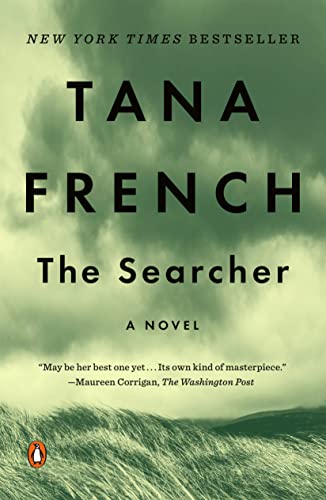
The Irish author, Tana French, is one of the best mystery novelists at work today. I just finished her latest, The Searcher, which is set in rural Ireland.
An American cop/ detective, Cal Hooper, turns in his badge in Chicago, and buys a run-down property in Ireland. There, Cal finds himself back in the detection business at the behest of a determined 13-year-old whose older brother has gone missing. We’ll stop there to avoid spoiling it for future readers.
There’s a passage toward the end of the novel where Cal is talking with his crusty older neighbor, Mart, about the missing boy. Mart opines about the state of boys in his culture, which ties to lots of contemporary themes.
Here’s an excerpt from The Searcher:
“‘We lose enough of our young men,’ Mart says . . . ‘The way the world’s after changing, it’s not made right for them, any more.
“‘When I was a young lad, we knew what we could want and how to get it, and we knew we’d have something to show for it at the end of the day. A crop, or a flock, or a house, or a family. There’s great strength in that.
“‘Now there’s too many things you’re told to want, there’s no way to get them all, and once you’re done trying, what have you got to show for it at the end? You’ve made a buncha phone calls selling electricity plans, maybe, or had a buncha meetings about nothing; you’ve got your hole offa some bitta fluff you met on the internet, got yourself some likes on the aul’ You-Tube. Nothing you can put your hands on (emphasis added).
“‘The women do be grand anyway; they’re adaptable. But the young men don’t know what to be doing with themselves at all. There’s a few of them, like Fergal O’Connor who you met there, that keep their feet on the ground regardless. The rest are hanging themselves, or they’re getting drunk and driving into ditches, or they’re overdosing on the aul’ heroin, or they’re packing their bags. I don’t want to see this place a wasteland, every farm looking the way your did before you came along: falling to wrack and ruin . . .”
The journalist and would-be candidate for Oregon governor, Nick Kristof, has written with his wife Sheryl WuDunn, a non-fiction study of similar themes based in his homeland, the lower Willamette Valley. It is titled Tightrope.

I tend to think that these lost boys are the canaries in the mine shaft of a society that is running low on the oxygen of structure, meaning, and love. While prioritizing things like job training and apprenticeship make good sense, I’m not sure that big social programs are the main answer.
My own thoughts are two-fold. One, a lot of young men who are lost or falling through the cracks never had much parenting, or much good parenting. There’s a need for re-parenting. For an older guy who loves you, believes in you and is there. Some kids are getting that. (Way to go, Dads and Moms.) But too many aren’t.
Second, I think the gospel is incredibly relevant, although not that many lost boys are finding it in the church. They may be finding it in AA, NA, and similar recovery groups. AA starts by telling the truth, encouraging us to be as honest with ourselves and others as we can manage, and building from there. “My life has become unmanageable,” is one way of saying, “No more bullshit. I am lost. I need help.” Starting from such honesty, the gospel offers hope, “You’re not alone in this . . . we’ve all been there, and here’s the good news: there’s mercy and there’s help. There’s a power greater than yourself that you can turn to, trust in, and count on. And we’re here with you in this.”
Alas, many churches and many pastors, including me, have been out of touch with those depths. Our messages have been too much about good people being better and doing good, rather than what the gospel is about. It is lost people being found and dead people raised to new life.
Discover more from Post Alley
Subscribe to get the latest posts sent to your email.

Congratulations on a very good piece with an important message. Only thing missing is recommendations on groups doing the work well that readers could join or suppport.
Interesting to note that Mars Hill Church, for all its failings, was very much directed at young men, lost after college, drifting and freeloading, and only drawn to a church that featured the kind of music they knew and liked.